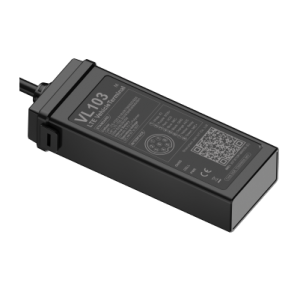In the age of digital transformation, businesses are always looking for ways to optimize their operations and stay ahead of the competition. One essential tool that has made a significant difference across industries is the 4G GPS tracker. This powerful device is not only improving fleet management but also revolutionizing the way businesses function. In this article, we’ll explore the fascinating world of 4G GPS trackers and how they’re changing the game for fleet management.
What is a 4G GPS Tracker?
A 4G GPS tracker is a device that uses 4G cellular networks and Global Positioning System (GPS) technology to track and monitor the location of vehicles in real-time. These trackers have become indispensable for businesses managing large fleets of vehicles, as they provide valuable insights into vehicle performance, driver behavior, and route optimization.
How 4G GPS Trackers are Transforming Fleet Management
The use of 4G GPS trackers has skyrocketed in recent years, and it’s easy to see why. According to a report from MarketsandMarkets, the global fleet management market is expected to grow from $20.6 billion in 2021 to $33.9 billion by 2026, at a Compound Annual Growth Rate (CAGR) of 10.5% during the forecast period. This growth can be attributed to the numerous advantages offered by 4G GPS trackers.
Here are some of the key benefits of using 4G GPS trackers for fleet management:
Real-Time Tracking and Monitoring
One of the most significant advantages of 4G GPS trackers is their ability to provide real-time location data. This means that fleet managers can keep an eye on their vehicles’ whereabouts at all times, ensuring that drivers are on the right track and following the most efficient routes. Additionally, real-time tracking helps resolve issues such as theft, unauthorized use of vehicles, and off-route detours.
Improved Driver Safety and Performance
4G GPS trackers can also help improve driver safety and performance by monitoring driving behavior. These devices can track factors like speed, harsh braking, and rapid acceleration, providing valuable insights into driver habits. Fleet managers can use this information to identify risky driving behaviors and take corrective actions, such as providing additional training or implementing stricter safety protocols.
Reduced Fuel Consumption and Emissions
Fuel consumption is a significant concern for fleet managers, as it directly impacts a company’s bottom line. 4G GPS trackers can help reduce fuel consumption by optimizing routes and minimizing idle time. In addition, these devices can monitor engine performance and identify issues that may be causing excessive fuel consumption. As a result, businesses can save money on fuel costs while also reducing their carbon footprint.
Enhanced Customer Service
By providing real-time location information, 4G GPS trackers enable fleet managers to provide accurate delivery or arrival time estimates to their customers. This helps enhance customer satisfaction and loyalty, as clients can plan their schedules more effectively. Moreover, in the case of service delays, fleet managers can proactively communicate with customers and provide updated arrival times.
Application Examples of 4G GPS Trackers in Fleet Management
The versatility of 4G GPS trackers has led to their widespread adoption across various industries. Here are a few application examples that demonstrate the power of these devices:
- Logistics and Transportation: Logistics companies use 4G GPS trackers to monitor delivery vehicles’ locations, ensuring that shipments reach their destinations on time. Real-time tracking helps identify potential delays and allows fleet managers to make necessary adjustments to avoid disruptions in the supply chain.
- Public Transportation: Public transportation agencies use 4G GPS trackers to track buses and trains, providing accurate arrival and departure times to passengers. This information helps improve the overall experience for commuters and encourages the use of public transportation.
- Emergency Services: Emergency response vehicles, such as ambulances and fire trucks, can also benefit from 4G GPS trackers. Real-time tracking enables dispatchers to direct vehicles to the scene of an emergency quickly, potentially saving lives.
- Rental and Leasing Services: Companies offering vehicle rental and leasing services can use 4G GPS trackers to monitor their fleet’s location, ensuring that vehicles are being used appropriately and returned on time. These devices can also help recover stolen vehicles and protect the company’s assets.
In Conclusion
The implementation of 4G GPS trackers is undoubtedly revolutionizing fleet management, offering numerous benefits and improving operational efficiency. From real-time tracking to enhanced driver safety and reduced fuel consumption, these devices are changing the game for businesses managing large fleets of vehicles.
As technology continues to advance, it’s crucial for businesses to stay on top of the latest trends and tools like 4G GPS trackers to maintain a competitive edge. By embracing these innovations, companies can optimize their operations, reduce costs, and provide a better experience for both their employees and customers.
If you would like more details, please visit Facebook, LinkedIn, INS, and Twitter pages to learn more.
 US
US ES
ES PT
PT TH
TH VN
VN JP
JP



